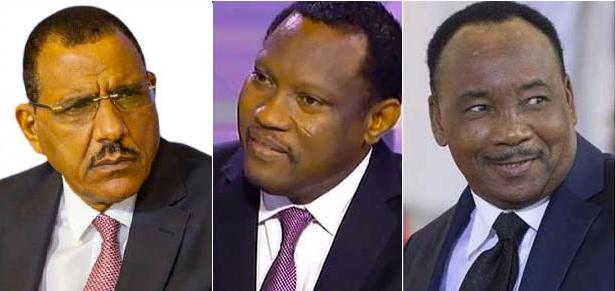Peacefulness and transparency of polls in Burkina Faso
Published on 2015 December 1, Tuesday Back to articles
Roch Marc Christian Kaboré © Letartean, cc 3.0
Roch Marc Christian Kaboré elected as Burkina Faso’s next president in ‘historic’ elections
Burkina Faso went to the polls on Sunday 29 November for historic elections, a year after the popular uprising which toppled President Blaise Compaoré in October 2014. The presidential and legislative elections, originally scheduled for October 11 but postponed after a coup d’Etat was attempted in September, conclude a successful political transition and put the country back on track towards constitutional order. Roch Marc Christian Kaboré from the Mouvement du Peuple pour le Progrès (MPP) won with 53.49% of the votes, while his rival Zéphirin Diabré from the Union pour le Progrès et le Changement (UPC) received 29.65%.
The peacefulness and transparency that characterised the polls show once again that Burkina can be an example for the continent, after it led the way in resisting attempts to meddle with the constitutional term limits – something afflicting many other countries, from Burundi and Rwanda to Congo – and in protecting its people’s ‘revolution’ against military take-over.
The elections were the most open-ended the country has ever experienced, and for the first time in over 25 years, Blaise Compaoré’s name was not on the ballot. In a country where over 70% of the population is under 30 years old and has therefore never known another President, this is already an important change. This probably explains unprecedented interest for the election and a good turnout. 60% of registered voters cast their ballot according to the electoral commission, and the number of Burkinabè registered on electoral lists had increased by 27% in comparison to the 2012 elections. Some people who had not bothered voting for years under the previous regime changed their mind this time, and proudly showed their inked finger – proof that they had cast their ballot. ‘We can feel that people are more determined to get their voice heard [than in previous elections]’ said a security officer at a polling station in Ouagadougou.
Many Burkinabè agree that the campaign itself was different from any other. The absence of an incumbent or designated successor – Compaoré’s party candidate was barred from the presidential elections due to a controversial electoral law, though it has been able to field candidates for the legislative elections across the country – meant that no party had an unfair head-start. The banning of electoral gimmicks such as T-shirts and pens meant that the campaign could focus on political programmes and, at least in cities, voters were eager to learn about the candidates’ ideas and how they intended to change the country.
Change has indeed been the buzzword of the campaign – and when you ask Burkinabè what they wanted out of the elections, or why they favoured a certain candidate, the answer was always the same: ‘I only want change’ – a shift in priorities, an improvement of living conditions, and a reduction of corruption and impunity.
Nevertheless, the President-elect has long been a key actor of the previous regime, having held various positions both in the government, at the National Assembly and in Compaoré’s party, the Congrès pour la Démocratie et le Progrès (CDP). Long foreseen as Compaoré’s political heir, he was sidelined in 2012 by the rise of Compaoré’s own brother, François. His split from the CDP in January 2014, when he formed the MPP and joined the opposition along with two other key CDP figures and around a hundred activists, proved a fatal blow for Compaoré.
The results of the crucial legislative elections were announced after those for the presidency, on 2 December. Burkina Faso’s national assembly counts 127 députés elected in a closed list proportional representation system, where individuals win seats in the National Assembly based on their position in 45 provincial, and one national, party lists.
Kaboré’s MPP obtained the largest number of seats, but failed to secure an absolute majority with 55 seats. The UPC, presidential runner-up Zéphirin Diabré’s party, is the second largest party, with 33 députés. Blaise Compaoré’s old party, the CDP, fared surprisingly well, coming third with 18 seats. The former ruling party had been forced by a controversial electoral code to sideline key figures who had openly supported Compaoré’s ill-fated attempt to remove term limits from the Constitution. This move turned out to be an opportunity to renew the party’s personnel. The remaining 21 seats were split among 11 parties.
This diverse parliament paves the way for alliances and consensus politics. The MPP will need to ally itself with smaller parties to govern efficiently and implement its programme, but it will need to build a wide consensus to write the new constitution it has promised which will require a two-thirds majority in parliament in order to be adopted. Even though Kaboré has left the door open to the possibility of forming a unity government, Zéphirin’s UPC could revitalise Burkinabè politics by leading a credible opposition and becoming a strong counterweight to the government, therefore building itself up as a real alternative to the MPP until the next elections in five years’ time. Ideological differences between the social-democratic MPP and liberal UPC would enable real political debates in the country and contribute to consolidating democracy in the country.
Kaboré has already announced that his priority will be to ‘put Burkina back to work’, therefore responding to the pressing needs of young people whose main concern is the absence of jobs. He has also promised to improve living conditions and access to health services, education and energy. Kaboré recognised the challenge just after his victory: “I know the task awaiting us is a daunting one’, and he will have no ‘honeymoon period’. Expectations are high, and, as one of the new president’s voters said, ‘if they don’t abide by their promises, Revolution Square will be packed again’.



